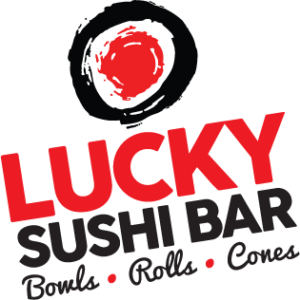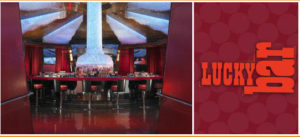Try your luck on this Section 2(d) bar. The USPTO refused registration of the mark LUCKY SUSHI BAR for bar and restaurant services [SUSHI BAR disclaimed], finding a likelihood of confusion with the registered mark LUCKY BAR for the same services [BAR disclaimed]. Applicant argued that LUCKY is a weak formative, pointing to more than two dozen third-party, use-based registration for marks containing the word LUCKY for restaurant or bar services, or both. How do you think this came out? In re LSB Group LLC, Serial No. 86510189 (November 30, 2016) [not precedential].

Applicant relied on 28 third-party registrations for LUCKY-containing marks, including LUCKY BEAVER BAR & BURGER, LUCKY’S LOUNGE [in Boston, near WGS], and LUCKY NOODLES. The Board pointed out, however, that third-party registrations are not evidence that the marks are in use, but they can show that a mark or a portion thereof has a descriptive or suggestive meaning, and is therefore weak. “An applicant may come closer to a weak mark without causing likelihood of confusion.”
Applicant argued that in this context, “lucky” may have the conventional connotation of “good luck,” or may bring to mind the slang expression “get lucky.” The Board agreed that this number of registrations lends support to the argument that “lucky” is at least suggestive here. [Of what? – ed. >]. However, most of the referenced marks are distinguishable from the marks involved here because many place “lucky” within a broader expression having a meaning different from “lucky” alone: e.g., “lucky strike,” “lucky horseshoe,” “lucky clover,” or “lucky streak.” Others use the possessive “Lucky’s,” suggesting an individual. Still others add non-generic/non-descriptive wording, whereas the two marks here consist of only the word “lucky” and generic terms.
However, because there was no evidence that these or any other “lucky” marks are in use, or that consumers are aware of the marks, the Board could not conclude that “lucky” is diluted and commercially weak. [In Juice Generation and Jack Wolfskin, there was proof both of third-party registrations and of considerable third-party use].
Even assuming that “lucky” is conceptually weak, the Board observed that “likelihood of confusion is to be avoided, as much between ‘weak’ marks as between ‘strong’ marks.”
The Board found, not surprisingly, that the word LUCKY dominates both marks. It found the marks to be similar in appearance and pronunciation, particularly in view of the identity in services. As to commercial impression, the Board agreed to some extent with applicant that SUSHI BAR creates a different impression than BAR alone. However, both the application and cited registration are broad enough to cover more specialized types of restaurants. Evidence showed the some establishments provide sushi bars and bar services.

Finally, the Board found no evidence to support applicant’s assertion that sophisticated purchasers are involved, and the argument regarding lack of actual confusion was of little or no value in this ex parte context, where the registrant has no opportunity to be heard.
And so the Board affirmed the refusal.

